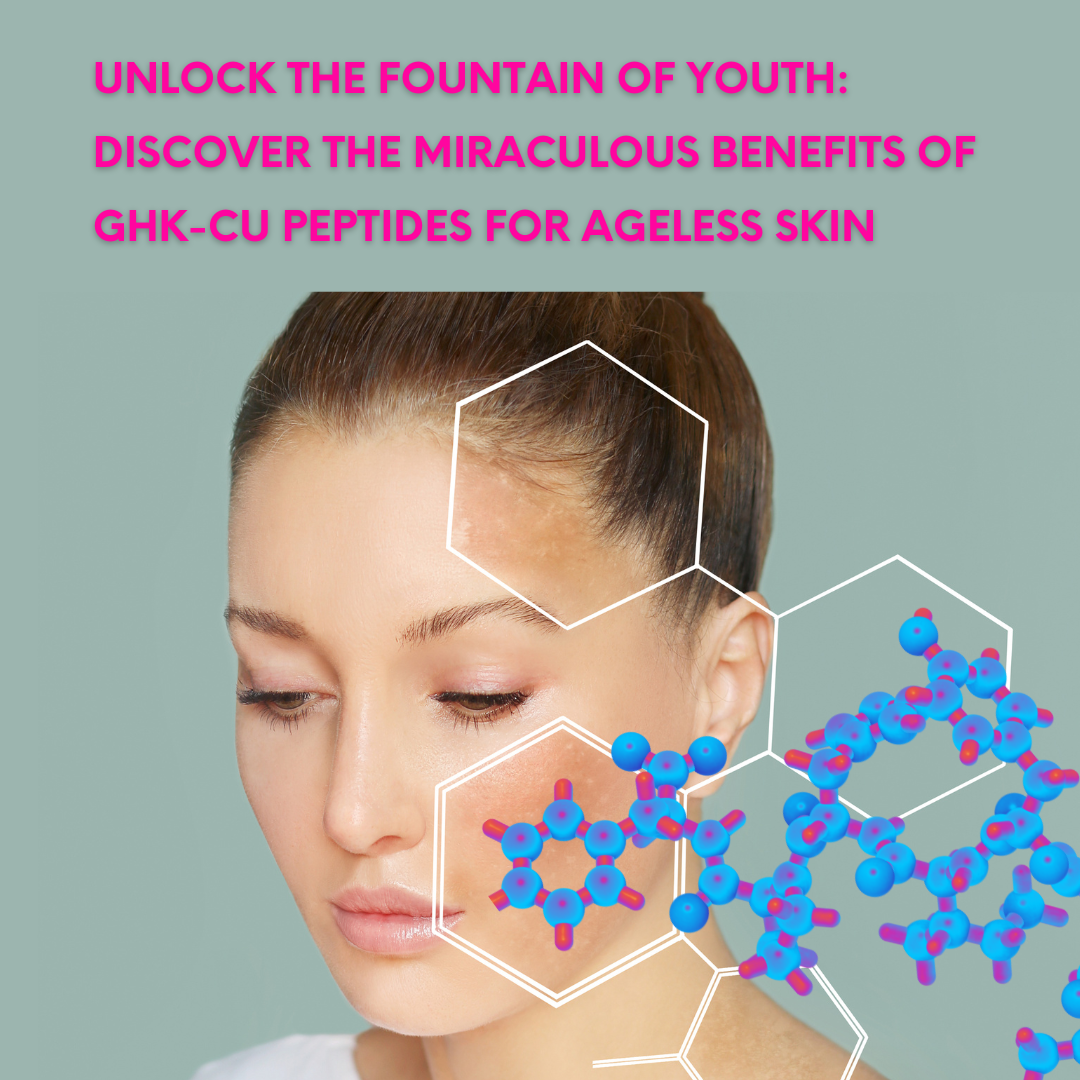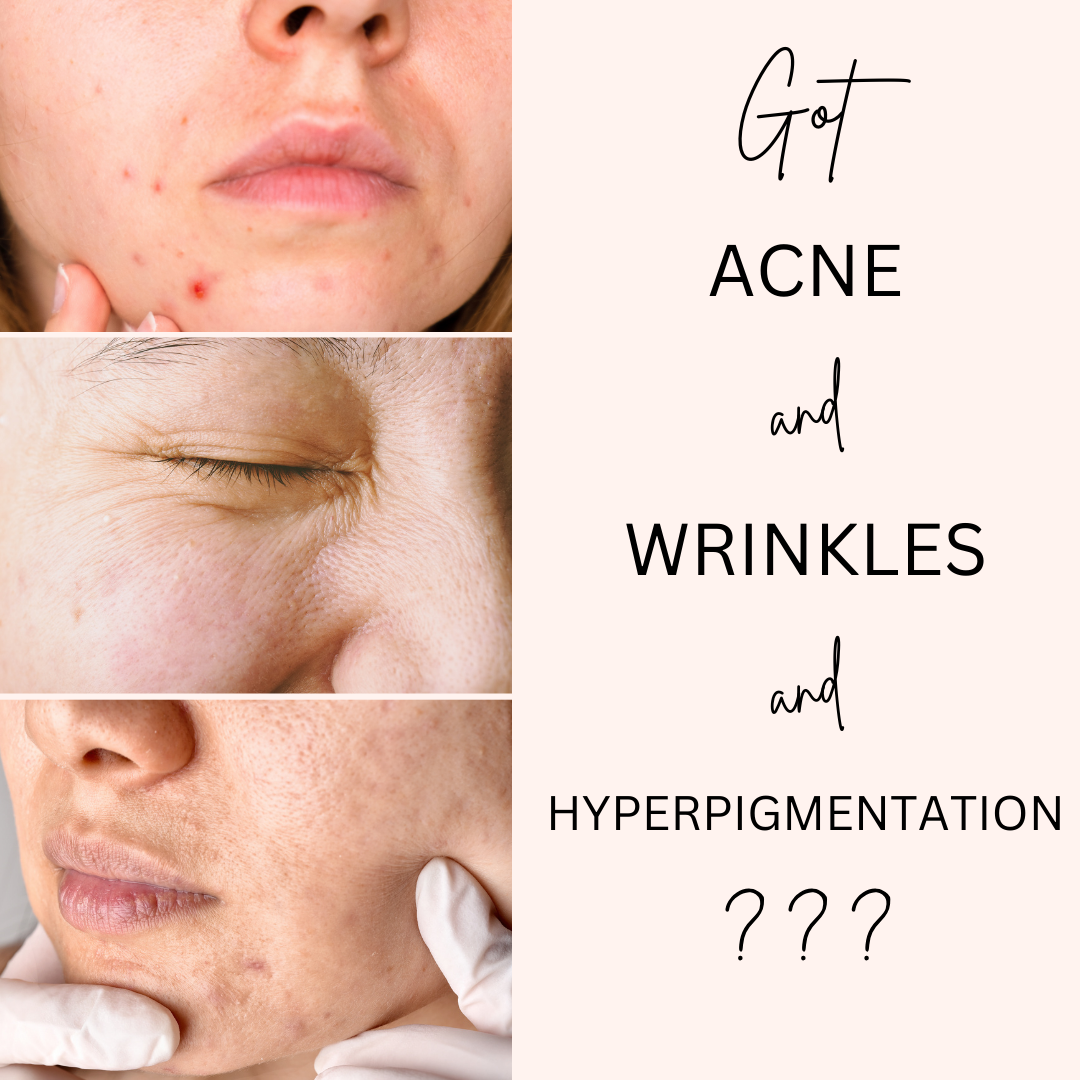
Unlock the Secret to Healthy, Glowing Skin: Why Your Skin Microbiome Needs Your Support!
I'll start with the short version:
Why a Healthy Microbiome is Key to Clear Glowing Skin
When it comes to achieving that coveted clear, glowing skin, the secret might not be in the latest skincare product or treatment but rather in the tiny world of microorganisms living on your skin. Yes, we're talking about the skin microbiome—a delicate ecosystem of bacteria, fungi, and other microbes that play a crucial role in maintaining your skin's health and appearance.
What is the Skin Microbiome?
The skin microbiome is essentially a collection of microorganisms that reside on the surface of your skin. While the idea of bacteria living on your skin might sound unsettling, these microbes are actually beneficial and essential for your skin’s health. They work together to protect your skin from harmful pathogens, maintain its natural barrier, and even help regulate inflammation.
The Role of the Microbiome in Skin Health
So, why is a healthy microbiome so important for clear, glowing skin? Here are a few reasons:
-
Protection Against Pathogens: Your skin's microbiome acts as a natural defense system. Beneficial bacteria on your skin compete with harmful pathogens for resources and space, preventing these harmful invaders from taking hold and causing issues like acne, eczema, or infections.
-
Maintaining Skin’s Natural Barrier: The skin barrier is your first line of defense against external irritants, pollutants, and moisture loss. A balanced microbiome supports this barrier, helping to keep it strong and intact. This means less dryness, irritation, and a reduced risk of breakouts.
-
Balancing Inflammation: Inflammation is a common cause of skin problems, from redness and irritation to chronic conditions like rosacea. A healthy microbiome helps regulate the skin’s immune response, keeping inflammation in check and ensuring your skin stays calm and clear.
-
Promoting Skin’s Natural Glow: When your microbiome is in balance, your skin is better able to retain moisture, repair itself, and function optimally. This leads to a smoother, more even complexion and that natural glow everyone is after.
How to Support a Healthy Skin Microbiome
Now that you know how important your microbiome is, here’s how you can support it:
-
Choose Gentle Skincare Products: Harsh cleansers and over-exfoliation can strip your skin of its natural oils and beneficial microbes. Opt for gentle, pH-balanced products that cleanse without disrupting your microbiome.
-
Incorporate Prebiotics and Probiotics: Prebiotics are ingredients that feed the good bacteria on your skin, while probiotics introduce beneficial microbes. Look for skincare products containing these ingredients to help maintain a balanced microbiome.
-
Avoid Over-Cleansing: While it’s important to keep your skin clean, over-cleansing can do more harm than good. Stick to cleansing your face once or twice a day to preserve your skin’s natural microbiome.
-
Stay Hydrated and Eat a Balanced Diet: Your skin’s health is closely linked to your overall health. Drinking plenty of water and eating a diet rich in fruits, vegetables, and healthy fats can support a healthy microbiome from the inside out.
The Bottom Line
Your skin microbiome is the unsung hero of your skincare routine. By taking care of it, you’re not just protecting your skin from the inside out, but you’re also setting the stage for clear, glowing skin. So, next time you’re considering what’s best for your skin, remember that a healthy microbiome might just be the key to unlocking your skin’s full potential.
By focusing on nurturing your microbiome, you’re giving your skin the tools it needs to stay radiant and healthy naturally. Clear 6 Serum contains potent probiotics and zero ingredients that could deteriorate your microbiome!
For the deeper dive into microbiome science:
In recent years, the skincare industry has seen a paradigm shift. Traditional skincare routines that focused solely on external treatments are now evolving into more holistic approaches that consider the skin as an ecosystem. Central to this evolution is the understanding and nurturing of the skin microbiome. This essay delves deep into the skin microbiome, exploring its significance, how it influences skin health, and the best practices for maintaining a balanced microbiome.
Understanding the Skin Microbiome
The skin microbiome refers to the complex community of microorganisms, including bacteria, fungi, viruses, and mites, that reside on the skin’s surface. Far from being mere passengers, these microorganisms play crucial roles in protecting the skin, supporting its barrier function, and even influencing immune responses. The skin microbiome is as unique as a fingerprint, varying from person to person based on factors like genetics, environment, lifestyle, and even skincare products.
The Diversity of the Skin Microbiome
Diversity is a hallmark of a healthy skin microbiome. Different areas of the skin harbor distinct microbial communities. For instance, oily areas like the forehead and back may host different microbes than drier areas like the arms or legs. This diversity is crucial for maintaining skin health, as different microorganisms perform various protective functions. Some bacteria, for instance, produce antimicrobial peptides that prevent the colonization of pathogenic microbes, while others help maintain the skin’s pH and barrier function.
The Role of the Skin Microbiome in Skin Health
The skin microbiome is more than just a collection of microorganisms; it is an active participant in skin health. A balanced microbiome can help protect against skin disorders, while an imbalance, or dysbiosis, is often associated with conditions like acne, eczema, and rosacea.
Protection Against Pathogens
One of the primary roles of the skin microbiome is to act as a barrier against pathogenic microbes. Commensal bacteria, which are the beneficial microbes living on the skin, compete with potential pathogens for resources and space. They can also produce substances that inhibit the growth of harmful bacteria, viruses, and fungi. For example, Staphylococcus epidermis, a common skin bacterium, can produce antimicrobial peptides that protect against pathogenic Staphylococcus aureus.
Immune System Modulation
The skin microbiome also plays a crucial role in modulating the immune system. It helps train the immune system to recognize and respond appropriately to pathogens without overreacting, which could lead to inflammation. Dysbiosis, or an imbalance in the skin microbiome, can lead to an overactive immune response, contributing to inflammatory skin conditions like psoriasis and atopic dermatitis.
Skin Barrier Function
A healthy microbiome supports the skin’s barrier function, which is essential for keeping moisture in and harmful substances out. The microbiome interacts with the skin’s cells to enhance the production of ceramides and other lipids that strengthen the barrier. Additionally, some microbes help maintain the skin’s acidic pH, which is crucial for preventing the growth of harmful bacteria.
Factors Affecting the Skin Microbiome
Several factors can influence the composition and health of the skin microbiome. Understanding these factors can help in making informed decisions about skincare and lifestyle choices.
Diet and Nutrition
What you eat can significantly impact your skin microbiome. Diets high in sugar and processed foods can promote the growth of harmful bacteria, leading to imbalances. Conversely, a diet rich in fiber, fruits, and vegetables supports a diverse and healthy microbiome. Omega-3 fatty acids, found in fish and flaxseeds, are particularly beneficial as they have anti-inflammatory properties that support skin health.
Environmental Factors
The environment plays a critical role in shaping the skin microbiome. Factors like humidity, temperature, and pollution can alter the microbial communities on the skin. For instance, high humidity can promote the growth of certain fungi, while pollution can lead to an increase in pathogenic bacteria. Moreover, frequent exposure to harsh environmental conditions can strip the skin of its natural oils, leading to dysbiosis.
Skincare Products
The skincare products you use can have a profound impact on your skin microbiome. Harsh cleansers, for example, can strip the skin of its natural oils and beneficial microbes, leading to an imbalance. Similarly, overuse of antibiotics in topical treatments can kill off not just harmful bacteria but also the beneficial ones, leading to dysbiosis. On the other hand, products formulated to support the microbiome, such as those containing prebiotics, probiotics, or postbiotics, can help maintain or restore balance.
Maintaining a Healthy Skin Microbiome
Given the crucial role of the skin microbiome in maintaining skin health, it is essential to adopt practices that support and nurture it. Here are some expert-recommended strategies:
Use Microbiome-Friendly Skincare Products
To maintain a healthy skin microbiome, it's important to choose skincare products that are gentle and free from harsh chemicals. Look for products that are labeled as microbiome-friendly, which means they are designed to preserve the natural balance of microbes on your skin. Ingredients like prebiotics, which feed beneficial bacteria, and probiotics, which introduce live beneficial microbes, can be particularly helpful.
Avoid Over-Cleansing
While cleanliness is important, over-cleansing can be detrimental to the skin microbiome. Harsh cleansers can strip away beneficial microbes and natural oils, leading to an imbalance. Instead, opt for gentle, pH-balanced cleansers that cleanse the skin without disrupting its natural microbial community.
Protect Your Skin Barrier
Since the skin barrier plays a critical role in maintaining the microbiome, it’s important to protect it. Use moisturizers that help restore the skin barrier, particularly those containing ceramides and fatty acids. Additionally, avoid over-exfoliation, which can damage the skin barrier and lead to microbiome imbalances.
Manage Stress
Chronic stress can negatively impact the skin microbiome by altering hormone levels and immune function, leading to imbalances. Stress management techniques like meditation, yoga, and regular exercise can help support a healthy microbiome.
Balanced Diet
As mentioned earlier, diet plays a crucial role in supporting the skin microbiome. A diet rich in fiber, fruits, vegetables, and omega-3 fatty acids can promote a healthy balance of microbes. Additionally, incorporating fermented foods like yogurt, kefir, and sauerkraut into your diet can introduce beneficial probiotics that support both gut and skin health.
Emerging Trends in Skin Microbiome Research
The study of the skin microbiome is a rapidly evolving field, with new research continually shedding light on the complex interactions between the microbiome and skin health. Some of the emerging trends and areas of research include:
Personalized Microbiome-Based Skincare
As our understanding of the skin microbiome deepens, there is growing interest in personalized skincare products that are tailored to an individual’s unique microbiome. Companies are beginning to develop diagnostic tools that analyze the skin microbiome and create customized skincare products designed to restore balance and address specific skin concerns.
Microbiome Transplants
Borrowing concepts from gut health, researchers are exploring the potential of microbiome transplants to treat skin disorders. This involves transplanting beneficial microbes from a healthy donor to a recipient with a dysbiotic microbiome. Early studies suggest that this approach could be effective in treating conditions like eczema and acne, though more research is needed.
Postbiotics in Skincare
While probiotics have been popular in skincare for some time, there is increasing interest in postbiotics—non-living microbial byproducts that provide benefits to the skin. Postbiotics can enhance the skin barrier, reduce inflammation, and promote a balanced microbiome. They are particularly appealing because, unlike live probiotics, they are more stable and easier to incorporate into skincare formulations.
The Skin-Gut Axis
The concept of the skin-gut axis is gaining traction, highlighting the connection between gut health and skin health. It is believed that a healthy gut microbiome supports a healthy skin microbiome and vice versa. This has led to an increase in products and treatments that target both gut and skin health simultaneously, such as oral probiotics that benefit the skin.
The Future of Skincare: Microbiome-Centric Approaches
The future of skincare lies in our ability to understand and harness the power of the skin microbiome. As research continues to uncover the intricate relationships between the microbiome and skin health, we can expect to see a shift towards more microbiome-centric skincare products and treatments.
Education and Awareness
One of the biggest challenges in the skincare industry is educating consumers about the importance of the skin microbiome. Many people are still unaware of the microbiome’s role in skin health, and as a result, they may unknowingly use products or adopt practices that disrupt it. Increasing awareness through education campaigns and informative product labeling can help consumers make better choices for their skin.
Regulatory Considerations
As the microbiome becomes a focal point in skincare, there will likely be increased scrutiny from regulatory bodies. Ensuring that products marketed as microbiome-friendly or containing live probiotics meet certain standards will be crucial for consumer safety and trust. Additionally, as personalized microbiome-based skincare becomes more common, there will be a need for clear guidelines on testing and product claims.
Collaboration Between Dermatologists and Microbiologists
The intersection of dermatology and microbiology is where the future of skincare innovation lies. Collaborations between dermatologists, microbiologists, and skincare brands will be essential in developing effective, science-backed products that genuinely benefit the skin microbiome. Such collaborations can also lead to new treatment protocols for managing skin disorders through microbiome modulation.
Conclusion
The skin microbiome is a vital component of skin health, influencing everything from barrier function to immune response. As our understanding of this complex ecosystem grows, so too does our ability to care for our skin in ways that are more holistic and effective. By embracing microbiome-friendly practices and products, we can support a balanced and diverse skin microbiome, leading to healthier, more resilient skin




Leave a comment
This site is protected by hCaptcha and the hCaptcha Privacy Policy and Terms of Service apply.